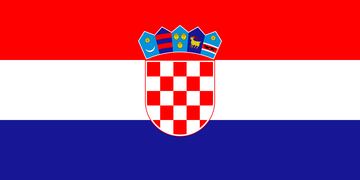
"Croatia’s legal and institutional framework guarantees media pluralism. The Agency for Electronic Media, which is the audiovisual media regulator, functions transparently, but it is not entirely shielded from political influence in relation to the selection procedure of the members of its governing body": this sentence taken from the country chapter of the 2020 Rule of Law Report pictures the actual situation of media freedom in Croatia, where legislation and legal background on one side, and reality and actual procedures on the other side, strongly differ for media workers and audiences.
Another example is given by access to information, which is guaranteed by law, but the process appears to be slow. In 2019, more than half of the appeals made to the Information Commissioner were filed due to failure of the authorities to resolve requests for access to information within the legal deadlines.
The chapter about safety of journalists is quite worrying for Croatia: according to the Rule of Law Report, "journalists face numerous threats online, including smear campaigns, hate speech, death threats and threats of physical attacks. According to several reports and stakeholders, these often do not elicit a timely reaction by the authorities", thus making impunity a delicate issue for the country.
The Criminal Code itself provides certain free speech and journalistic safeguards as it considers the ‘violation of freedom of thought and expression’ and “intimidation” to be criminal offences. However, journalists are also subject to lawsuits themselves, often with an intimidating effect. In 2019, well over 1000 lawsuits against journalists were filed. While most of the cases are civil cases concerning ‘compensation claims for alleged non-material damages’, some cases are criminal cases. This wave of lawsuits was the subject of an alert submitted to the Council of Europe’s Platform and was classified as “related to the harassment of journalists”. And it confirms the abuse of strategic litigations (SLAPPs).
In Croatia, imprisonment is among the envisaged sanctions for defamation, while the offence of strong shaming was removed from the Criminal Code in 2019.
According to the Media Pluralism Monitor , "in the area of basic protection, Croatia is protecting journalistic profession and standards poorly". There are no legal provisions with regard to preventing illegal monitoring of journalists by law enforcement authorities. Self-regulatory measures for protecting journalism are ineffective.
Other critical elements are underlined in the analysis of the market: market plurality domain scores high risks in the indicators covering online platforms concentration and competition enforcement, news media concentration and owner and commercial influence over editorial content. There are no specific limits referring to digital news media (i.e.electronic publications in the Electronic media Act) with regard to horizontal and cross-media concentration. There are no media specific laws that would apply to the advertising market.
However, the main problem influencing media freedom and interfering with journalists' independence is the lack of editorial autonomy: according to the MPM, it scores a high risk of 97 percent and is the most problematic indicator in the entire evaluation. There are systematic cases of political interference in appointment and dismissals of editors-in-chief.
Tags: Croatia
This content is part of the Media Freedom Rapid Response (MFRR), a Europe-wide mechanism which tracks, monitors and responds to violations of press and media freedom in EU Member States and Candidate Countries. The project is co-funded by the European Commission.


